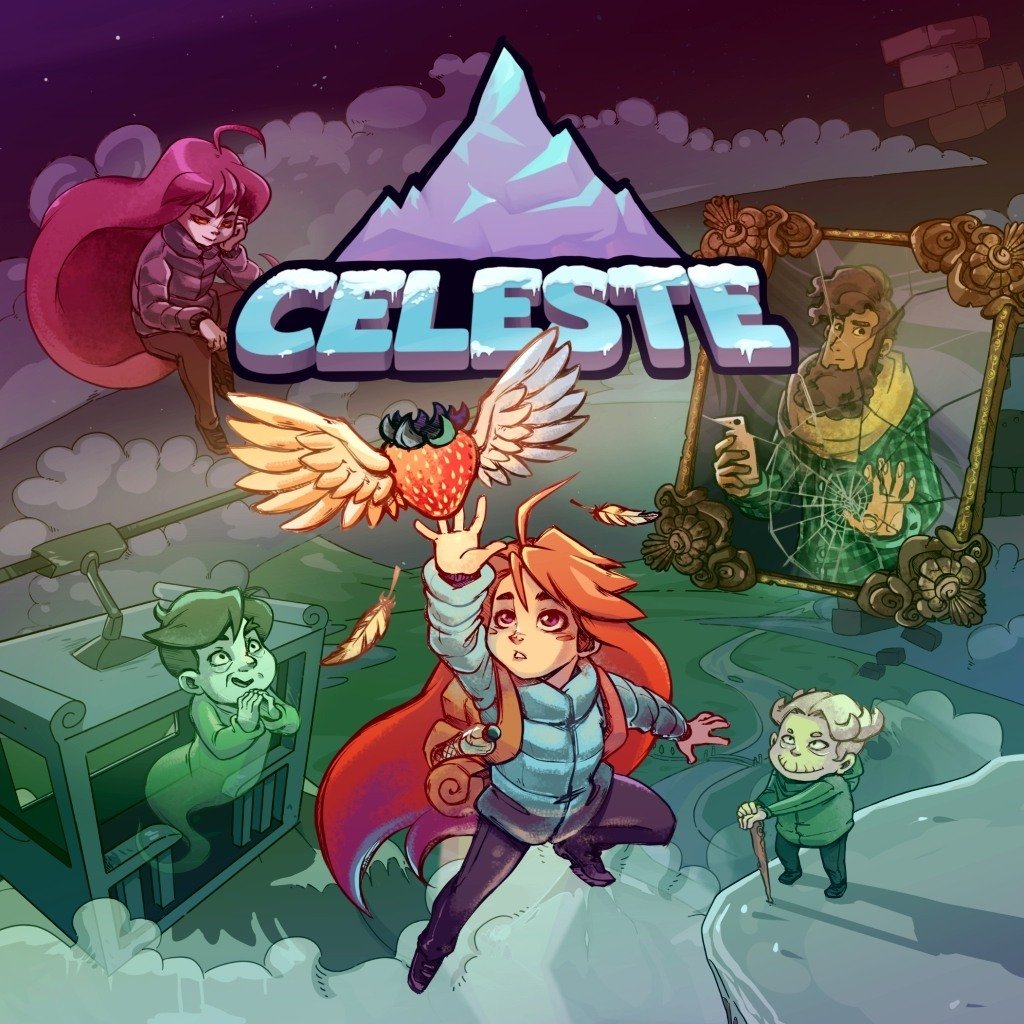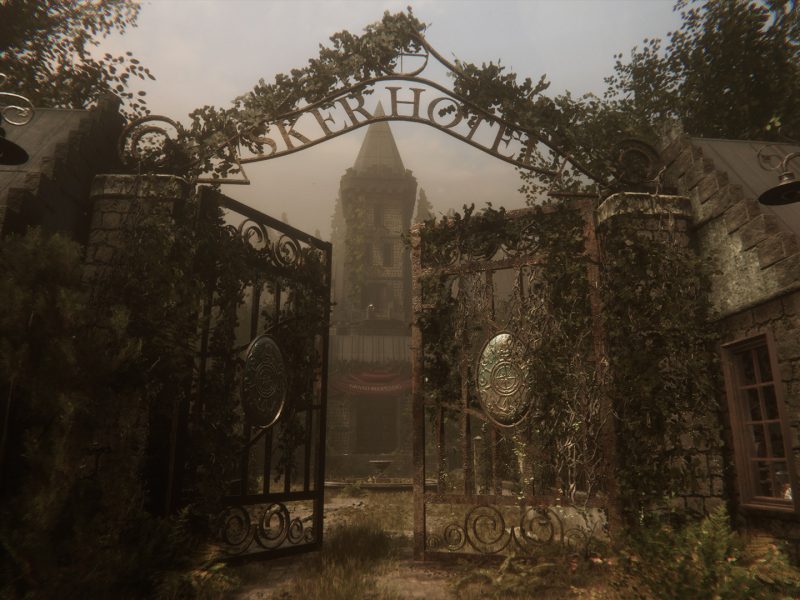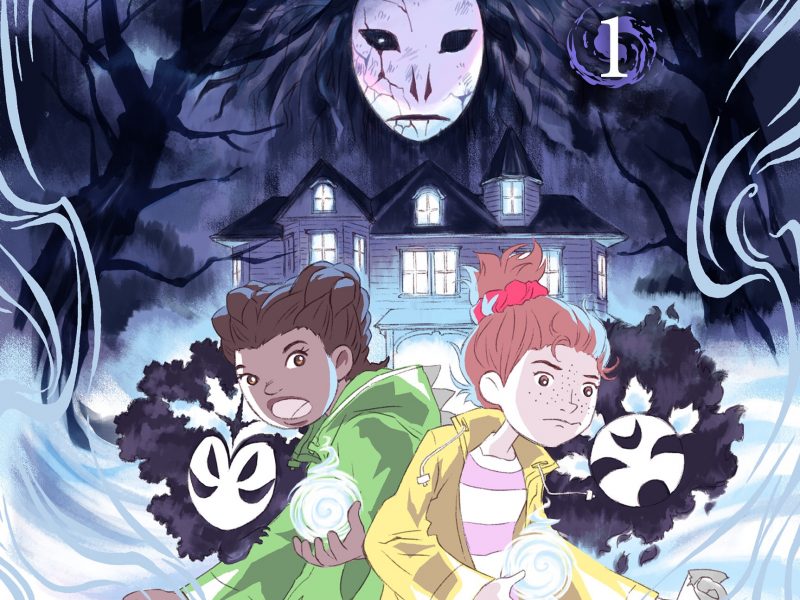GAME REVIEW | "Celeste" Climbs A Massive Emotional Mountain
"A wise man will climb Mt. Fuji once; a fool will climb Mt. Fuji twice." - Japanese Proverb
Mountain climbing can be a strenuous hobby. I've hiked up quite a few mighty hills and a handful of mountains in the New Hampshire area, so it goes without saying that you need a right mindset in order to conquer even a decent-sized peak. Some people do it for the thrill; others for exercise. For the character of Madeline in Celeste, her reason is simple: to clear her head of wicked thoughts.
Developed by Matt Makes Games, Celeste focuses on a twenty-something woman setting out to climb a massive mountain. With warnings from an old lady and the backing of a selfie-friendly hiker named Theo, the girl traverses up Celeste Mountain to seek a stable mind. However, doubt takes a form via a Part of Madeline, who throws down insults and mystical powers to keep the young climber from reaching her goal. As she aims to reach higher, her confidence becomes better, even when her inner demons are trying to keep her down.
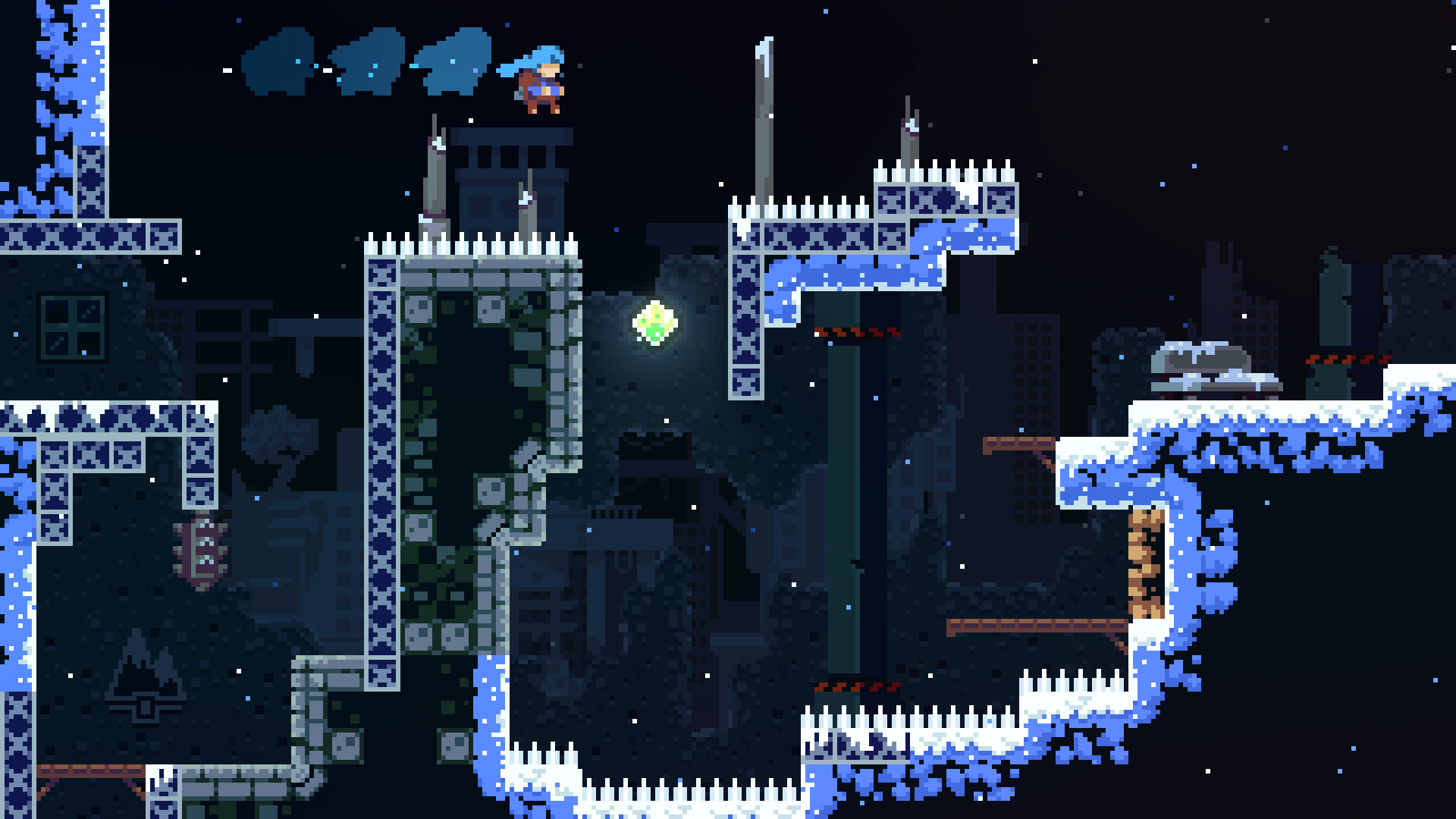
Celeste is set up as your run-of-the-mill platforming title, with players having to jump, glide, and -- occasionally -- fly through hazards in order to reach the next area. Spikes, deep drops, and weird enemies roam the levels, with Madeline having to evade them with a combination of brains and speed. Madeline has the ability to dash, but can only do it once before having to hit the ground to regain it or -- in some instances -- grab a replenishing crystal mid-jump. When enemies attack, she can either stun them by landing on top of them or run away. One hit, and players will have to start at the beginning of the area.
Right at the get-go, Celeste delivers a challenging experience. While there are no penalties per se, the amount of times you will die in this game will have you groan with some sort of angst. (My number was near the 1200-mark by the time the end credits rolled.) Thankfully, this is a game that welcomes the trial-and-error method, as each death is just another way of watching another strategy be chucked into the fire. It can get frustrating, no doubt about it, but there's a point to it in the game's story.
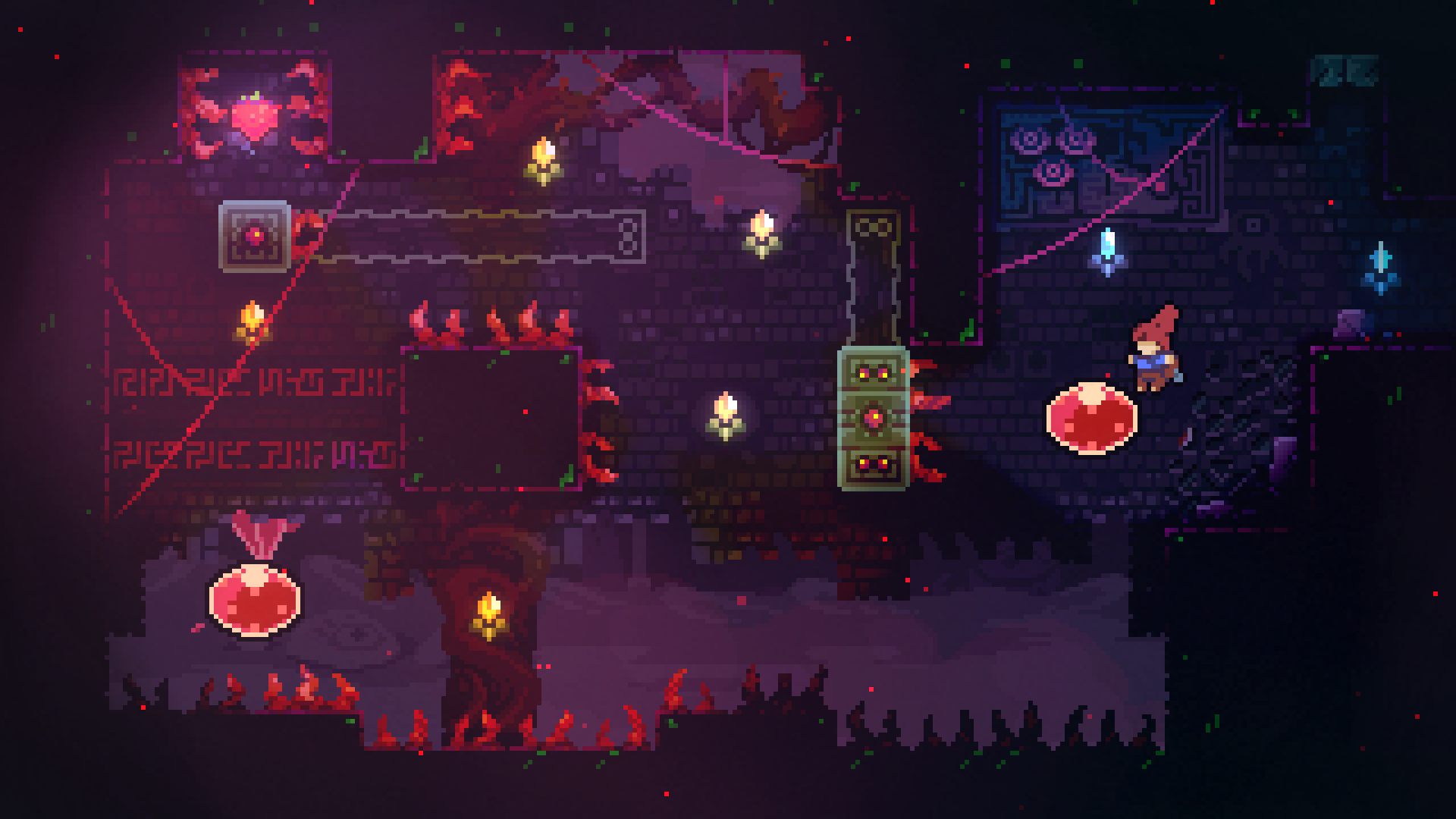
What makes Celeste an endearing experience is how its protagonist is portrayed. Madeline suffers from depression, becomes prone to panic attacks, and is full of self-doubt. Her interactions with Part of Madeline are a deep and beautiful way of showing how someone with depression goes on with their daily life. Nothing is sugar-coated in the way it's presented, as Madeline is literally and metaphorically thrown around by the hazards of both the mountain and her inner demons.
It's when Theo plays a bigger role in the game's story where Celeste becomes a powerful lesson on how one can deal with self-doubt. In a way, Matt Makes Games goes for the point that it's always good to confide with someone you trust to help you during the rougher patches in life. This is a lesson that not only shows players how one can battle depression, but also just about any sort of hurdle that the world throws at you. While I am not saying that talking to a friend is the be-all cure for depression, getting one's frustrations off your chest over a roaring campfire certainly is a step in the right direction.
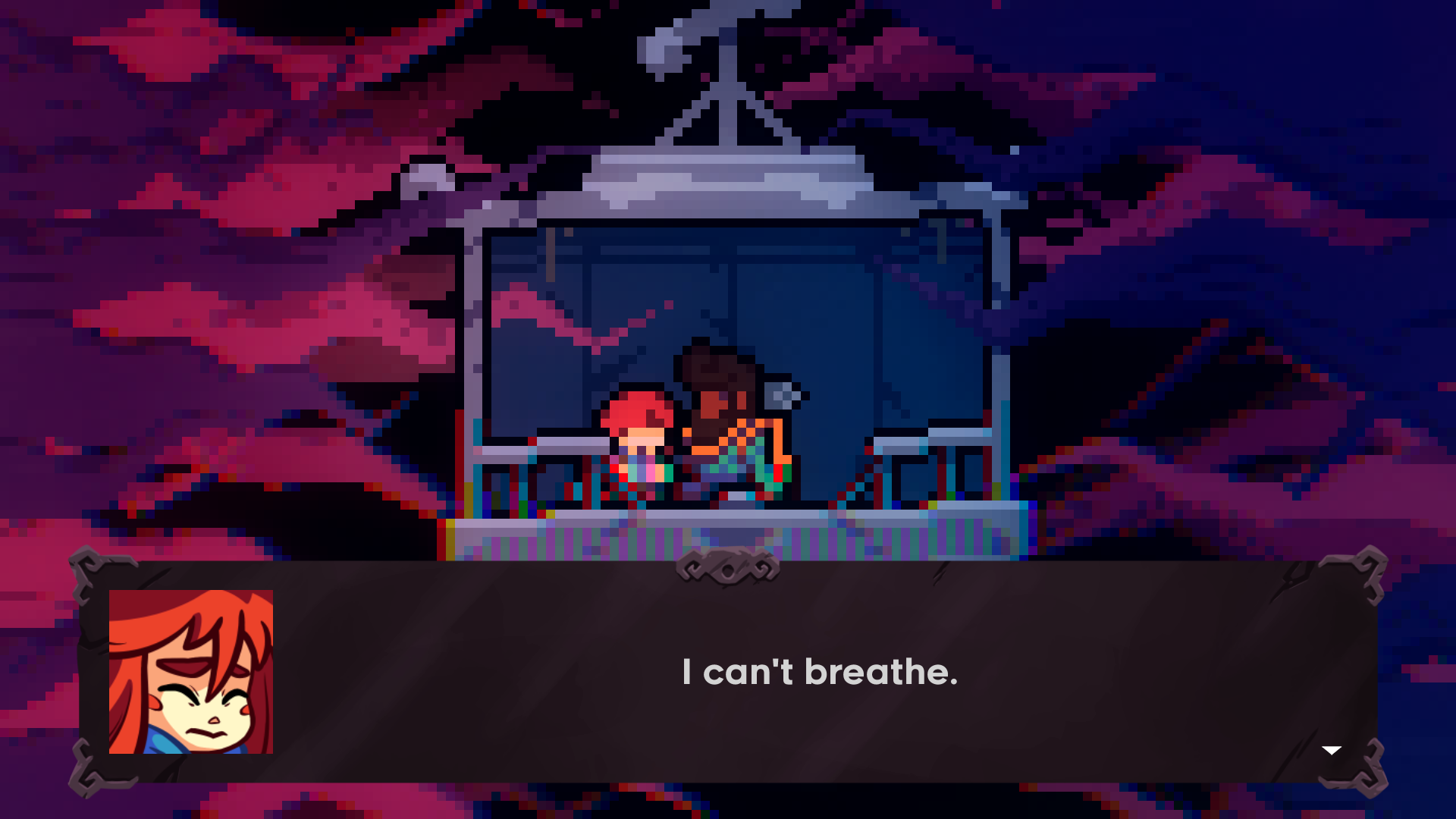
As such, it's kind of noble for a game that's all about taking on a harrowing task to encourage the usage of its Assist Mode. Players can set it do you can have two or infinite dashes, game speeds lowered all the way down to 50%, and even invincibility to help you along the way. There are no penalties for using these elements, as Celeste wants you to take on Madeline's journey in your most comfortable of means. Even the strawberries you collect throughout the game are just a fun little extra thing to do that doesn't unlock some epic secret at the end; it just makes your pie taste a little bit better.
However, even with Assist Mode, Celeste is one tough nut to crack. There were some areas where I had the dashes turned up to infinity and the speed down to 50%, and I was still dying left and right. Despite being given a helping hand with these options, this game wants you to still strategize your way through the harrowing winds and thorns that roam this unforgiving mountain.
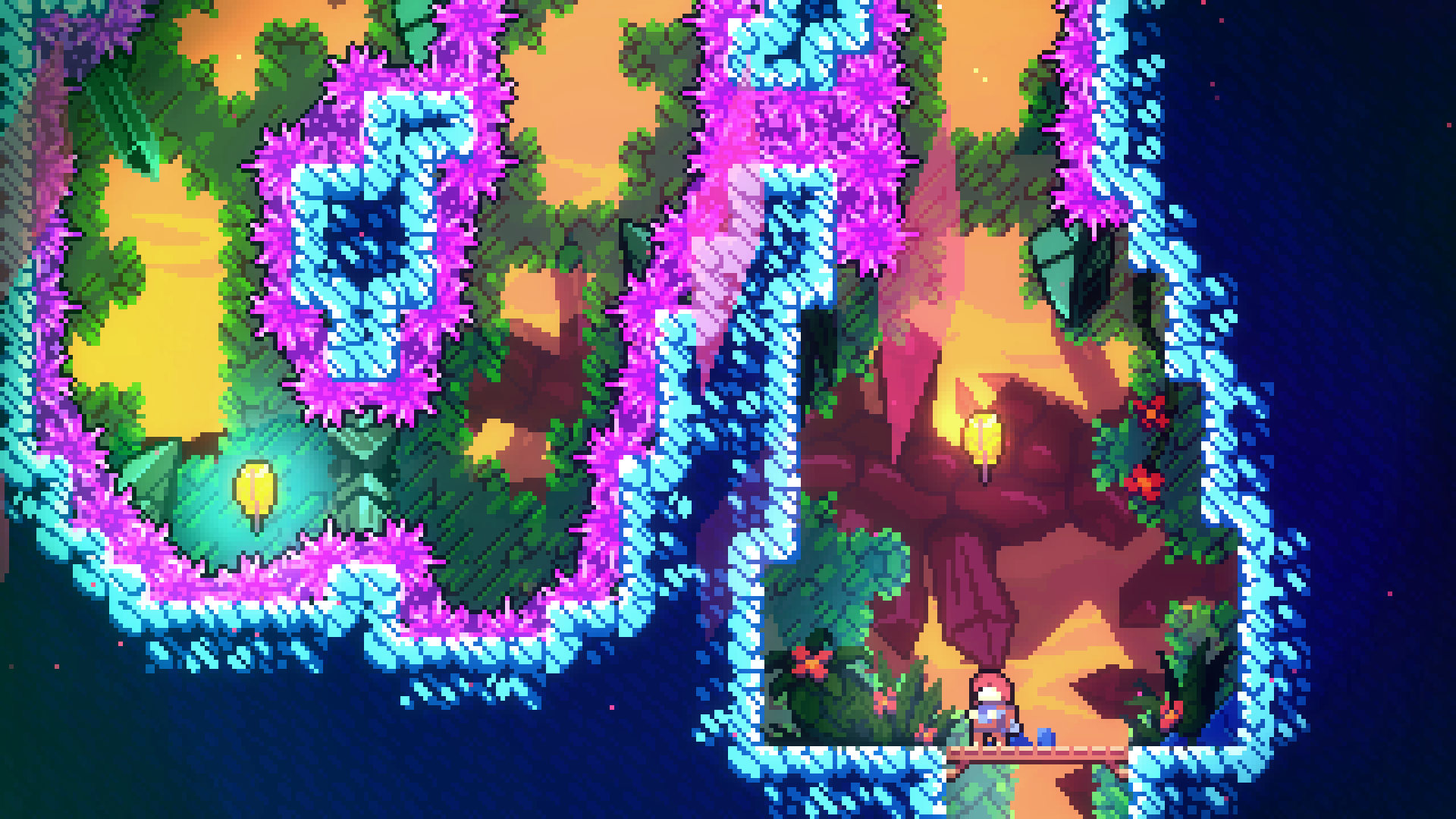
And yet, never once did I have the urge to throw down my controller in frustration. This is a video game that constantly motions you over to the next side, cheering you on as you leap from one safe area to the next. Yes, you will die on many occasions, which is why it will feel so good when you clear an area. Celeste will give players hope that the next big challenge will be conquered, even if it takes you hundreds of times to reach the other side.
Celeste will take you roughly 8-9 hours to beat your first time around. Players can revisit past levels to collect strawberries and find four hearts that are hidden throughout the area. (Those who find all four will be able to take on the game's final level, one that takes place within the heart of the mountain.)
PROS:
- Deep, engrossing story
- Challenging platforming
- Encourages hand-holding
CONS:
- Difficulty spikes early
FINAL THOUGHTS:
Celeste is one hell of a challenging game, but it also delivers a deep and emotional story. With its portrayal of depression presented with care and loads of heart, Madeline's journey towards getting something heavy off of her chest will ring true and familiar to many others who battle the fog on a daily basis. This is one mighty mountain that any gamer should seek to conquer, and it doesn't even require you to buy hundreds of dollars worth of climbing gear!
FINAL GRADE:
Reviewed on the Xbox One


